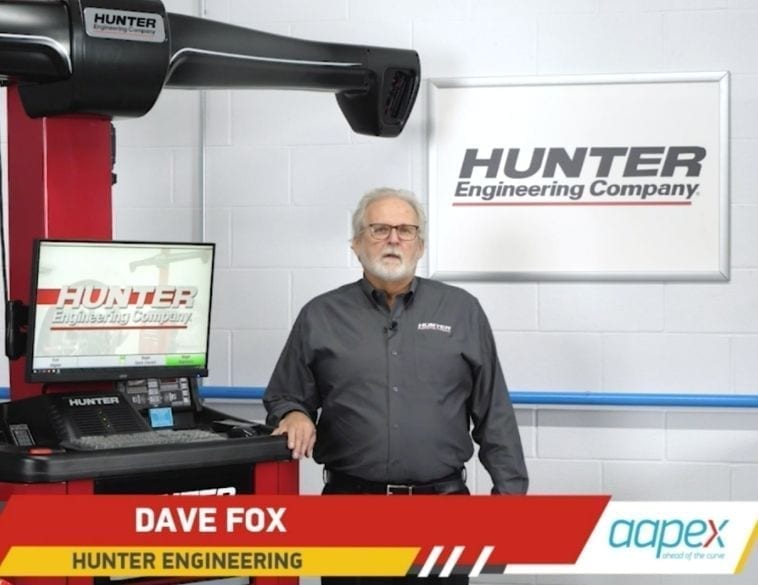Emeritus trainer Dave Fox from Hunter Engineering gave a presentation at the virtual AAPEX show that sets the table for anyone who should be interested in ADAS maintenance.
Fox believes that advanced driver assistance systems should be part of the development of aftermarket businesses. Identifying these systems and their components, diagnosing and calibrating them is a niche that complements the work of shops, whether they are in the mechanical, body or tire sector.
As Dave Fox pointed out, there are currently cars on North American roads, 4% of which have ADAS systems that require verification after steering, suspension or alignment work. After a collision, 7% of cars currently have an ADAS system that needs to be systematically checked. He estimates that this percentage will increase to nearly 14% in less than four years.
He also pointed out for the benefit of garages that as of 2018, 93% of automakers will offer some form of ADAS as standard or optional equipment.
Progressive control
Several workshops are already equipped with an alignment table, which is the first step towards offering maintenance services for ADAS systems. Obviously, space and lighting quality must meet certain constraints.
A team skilled in alignment can integrate the tools and knowledge necessary to meet this demand. “The management of ADAS systems directly affects the safety of your customers. Sensor and camera calibration procedures are not to be taken lightly and should follow the manufacturer’s recommendations, indicated in the analyzer or in the alignment system software to which the calibration tools will be grafted. »
In fact, the specialist points out that a check of the wheel alignment, front and rear, of customer vehicles should be part of the regular inspection program. Some calibrations are done dynamically, meaning that the technician will drive the car around while leaving the analyzer plugged in. The analyzer will tell him whether the operation was successful or not.
Static calibration is done in the workshop, with a level platform and the necessary targets. The process may vary from one manufacturer to another, but it requires precise alignment as a starting point.
Great rigour
Mr. Fox emphasizes how important it is to pay attention to each step and to all the particularities of the different models of ADAS-equipped cars that will pass through your shop. For example, the simple replacement of a battery, on some models, requires a reset of the steering wheel sensor. Speaking of batteries, Mr. Fox reminds us of the importance of making sure, when calibrating or programming, that the battery is connected to a charger.
Hunter Engineering offers several solutions for shops that want to upgrade to meet the maintenance needs of vehicles with advanced driver assistance systems. The important thing, according to Dave Fox, is to immediately establish a strategy for the company to respond with the right knowledge and tools.



